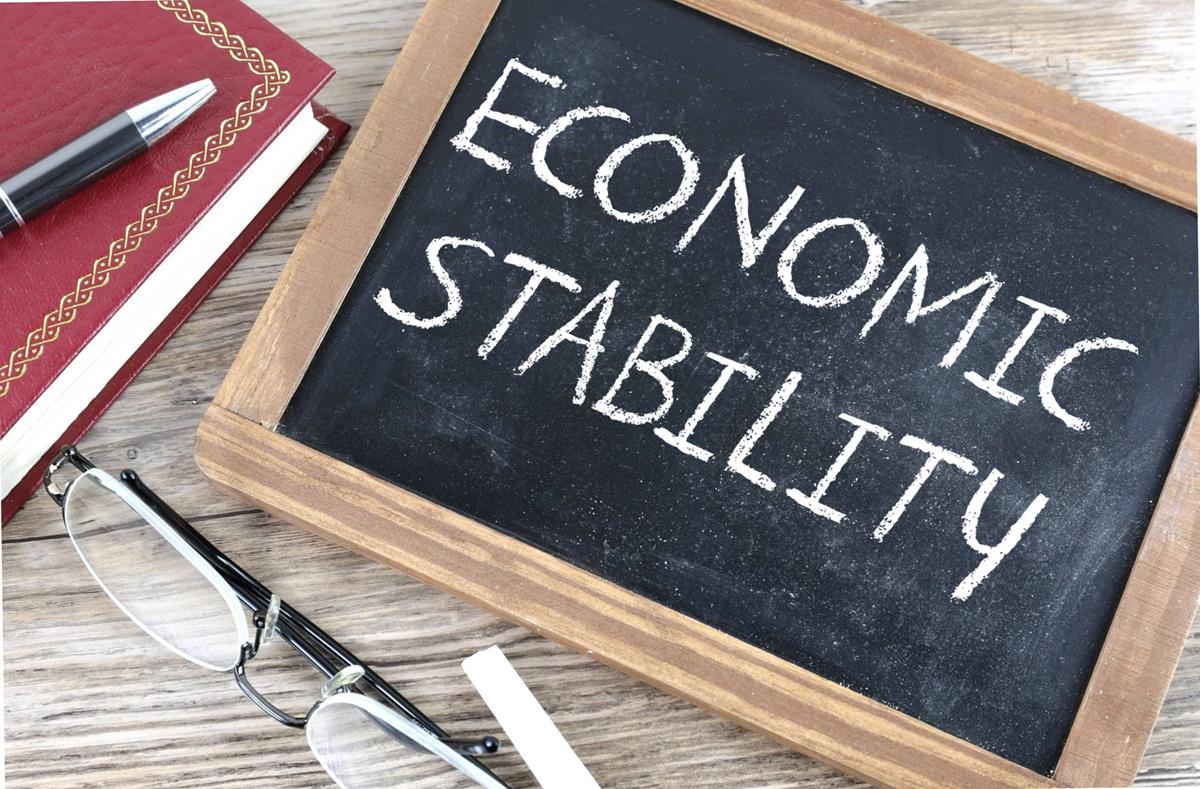
Economic stability is a term often thrown around, but what does it really mean? In simple terms, economic stability refers to a state where a country experiences steady growth, low inflation, and low unemployment. This balance helps ensure that citizens have jobs, prices remain predictable, and the economy grows at a sustainable rate. Why is economic stability important? It creates a predictable environment for businesses to invest and expand, which in turn generates more jobs and wealth. Without economic stability, countries can face recessions, high inflation, or even economic crises. Understanding the factors that contribute to economic stability can help us appreciate its significance and the efforts required to maintain it.
Key Takeaways:
- Economic stability means steady growth and low inflation, leading to more jobs, confident spending, and attracting foreign investment. It's like a strong foundation for a stable and secure financial future.
- Challenges like global conditions, natural disasters, and technological disruptions can shake up economic stability. But historical examples and international organizations play a role in maintaining and promoting stability.
What is Economic Stability?
Economic stability refers to a state where an economy experiences constant growth and low inflation. It ensures that the economy is not subject to extreme fluctuations, which can lead to financial crises or recessions. Here are some interesting facts about economic stability:
-
Economic stability helps maintain low unemployment rates. When an economy is stable, businesses are more likely to invest and expand, creating more job opportunities.
-
It promotes consumer confidence. People are more likely to spend money when they feel secure about their financial future, which in turn stimulates economic growth.
-
Stable economies attract foreign investment. Investors prefer to put their money in countries where the economic environment is predictable and secure.
Factors Influencing Economic Stability
Several factors contribute to the stability of an economy. Understanding these can help in creating policies that promote sustained economic growth.
-
Monetary policy plays a crucial role. Central banks use tools like interest rates and money supply to control inflation and stabilize the economy.
-
Fiscal policy is equally important. Government spending and taxation decisions can either stimulate or slow down economic activity.
-
Political stability is a key factor. Countries with stable governments are more likely to have stable economies because policies are consistent and predictable.
-
Natural resources can impact stability. Countries rich in natural resources often have more stable economies due to the revenue generated from exports.
-
Technological advancements contribute to stability. Innovation can lead to increased productivity and economic growth.
Benefits of Economic Stability
A stable economy offers numerous advantages for both individuals and businesses. Here are some of the key benefits:
-
It reduces the risk of financial crises. Stable economies are less likely to experience sudden downturns that can lead to widespread financial problems.
-
Improves living standards. When the economy is stable, people generally have better access to goods and services, improving their quality of life.
-
Encourages long-term planning. Businesses and individuals are more likely to make long-term investments when they are confident in the economy's stability.
-
Enhances social stability. Economic stability often leads to social stability, as people are less likely to experience financial stress and insecurity.
Challenges to Economic Stability
Despite the benefits, maintaining economic stability is not without its challenges. Various internal and external factors can disrupt an economy.
-
Global economic conditions can affect stability. Economic downturns in major economies can have a ripple effect on smaller, interconnected economies.
-
Natural disasters pose a threat. Events like earthquakes, floods, and hurricanes can disrupt economic activities and lead to instability.
-
Political instability can undermine economic stability. Frequent changes in government or political unrest can create an unpredictable economic environment.
-
Technological disruptions can be a double-edged sword. While innovation can drive growth, it can also lead to job losses and economic displacement.
Historical Examples of Economic Stability
Looking at historical examples can provide valuable insights into how economic stability has been achieved and maintained.
-
Post-World War II economic boom in the United States. The U.S. experienced rapid economic growth and stability due to increased industrial production and consumer spending.
-
Germany's economic stability post-reunification. After the fall of the Berlin Wall, Germany implemented policies that led to economic growth and stability.
-
Japan's economic miracle. Post-World War II, Japan's focus on technology and manufacturing led to decades of economic stability and growth.
-
The Nordic model. Countries like Sweden and Norway have maintained economic stability through a combination of social welfare policies and free-market capitalism.
Economic Stability in Developing Countries
Developing countries face unique challenges in achieving economic stability. However, some have managed to create stable economic environments.
-
China's rapid economic growth. Through market reforms and opening up to foreign investment, China has achieved significant economic stability.
-
India's economic reforms. Liberalization policies in the 1990s helped stabilize India's economy and promote growth.
-
Botswana's stable economy. Wise management of diamond resources has led to economic stability in Botswana.
-
Chile's economic policies. Market-oriented reforms and prudent fiscal policies have contributed to Chile's economic stability.
The Role of International Organizations
International organizations play a significant role in promoting economic stability around the world.
-
The International Monetary Fund (IMF) provides financial assistance. The IMF helps countries facing economic instability by offering financial support and policy advice.
-
The World Bank funds development projects. By financing infrastructure and development projects, the World Bank helps promote economic stability in developing countries.
-
The World Trade Organization (WTO) promotes fair trade. By ensuring that trade rules are followed, the WTO helps maintain global economic stability.
Future of Economic Stability
As the world changes, so do the factors that influence economic stability. Here are some trends that could shape the future:
-
Climate change poses a significant risk. Extreme weather events and changing climate patterns can disrupt economic activities and lead to instability.
-
Digital currencies could impact stability. The rise of cryptocurrencies and digital currencies could change how economies operate and maintain stability.
-
Globalization will continue to influence stability. As economies become more interconnected, global events will have a greater impact on local economic stability.
-
Demographic changes will play a role. Aging populations in many countries could affect economic stability by increasing healthcare and pension costs.
-
Technological advancements will continue to be a factor. Ongoing innovation will drive economic growth but could also lead to new challenges.
Personal Impact of Economic Stability
Economic stability affects everyone, from individuals to businesses. Here are some ways it impacts daily life:
-
Job security increases. In a stable economy, people are less likely to lose their jobs, providing financial security.
-
Savings and investments grow. Stable economies offer better returns on savings and investments, helping people build wealth.
-
Access to credit improves. Banks are more willing to lend money in stable economies, making it easier for people to buy homes and start businesses.
Economic Stability: The Bottom Line
Economic stability is crucial for a nation's growth and prosperity. It affects everything from employment rates to the cost of living. Understanding the factors that contribute to economic stability helps individuals and policymakers make informed decisions. Key elements include inflation control, sustainable growth, and balanced budgets. Countries with stable economies often enjoy higher standards of living and better public services. On the flip side, instability can lead to unemployment, poverty, and social unrest. By focusing on sound economic policies and practices, nations can create environments where businesses thrive and citizens enjoy better quality of life. So, next time you hear about economic indicators or policy changes, you'll know just how important they are for maintaining stability. Keep these facts in mind to better understand the world around you.
Frequently Asked Questions
Was this page helpful?
Our commitment to delivering trustworthy and engaging content is at the heart of what we do. Each fact on our site is contributed by real users like you, bringing a wealth of diverse insights and information. To ensure the highest standards of accuracy and reliability, our dedicated editors meticulously review each submission. This process guarantees that the facts we share are not only fascinating but also credible. Trust in our commitment to quality and authenticity as you explore and learn with us.


